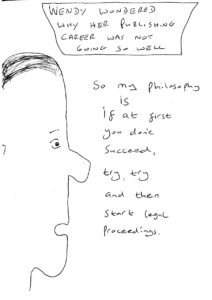Jonathan Rix is the Professor of Participation & Learning Support at the Open University.

Rejection is at the heart of being a researcher. Most of us have accepted that the impact of our words and our work will be niche. But that does not stop us from dreaming dreams or from needing a bit of hope in our working lives. Submitting papers and applications is a key source of this hope.
Some personal pain
The nature of rejection can be wide and varied. Here are three of my personal favourites:
- a major educational journal not sending a paper out for review because they felt an international study on Special Educational pedagogy did not fit their brief
- being rejected on the basis of things in the first draft, not the resubmission
- an editor agreeing with our reasons for not making a particular change but rejecting the paper on the basis of not making that change, because their policy was to follow reviewer recommendations.
(Shattered) Hopes and dreams
Some funders have a two-stage rejection process. You try not to get your hopes up for the first stage, but find they surge when you get through to the second stage – much as they do when you resubmit a second draft with major rewrites. Consequently, your hopes have even further to come crashing down when they finally say ‘no’. Perhaps worse still, is applying or submitting to those funders/journals that you think love you already, because they have funded or published you previously. You can’t help but feel confident. This rejection feels like a personal betrayal.
In stark contrast are those moments of unsolicited joy, when offers come out of the blue. These are rare but magical. Once, I was rejected by a major funder having received their highest review scores. We despaired of the world. But three months later (having got over the pain) we got a barely-believable email to say funding had now been approved. How fantastic is that…. but what sort of precedent has it set for my hopes and dreams? When can I put my hopes to bed and dream new dreams?
Getting back up again
Our response to rejection is a key part of our academic identity. I tend to spend a short period of time being very rude about the reviewers/editors/funders. This brings some sense of catharsis. I remind myself why they are wrong and what fine work it is. Then, feeling a bit better about myself, I copy and paste any feedback into the article/submission and get on with reworking it. Annoyingly, almost invariably, the subsequent document is much improved.
This determination to dust ourselves down and get back up again, to re-engage with hope, is a key strength in building a successful research profile. This is why a few years ago having been rejected by a major US journal, I received an acceptance email from an even higher ranked US journal (after four resubmissions) with a note from the editor telling me they were surprised I managed it.
The great thing about rejection is getting over it.
How else do you show them you were right all along?

Jonathan Rix is the Professor of Participation & Learning Support at the Open University. His research interests focus upon: policies, practices and language that facilitate inclusion within the mainstream; capturing diverse perspectives; and developing models to facilitate our thinking about the form and function of education.